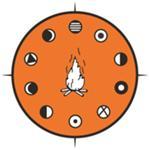Reaction to the tabling of Bill 32: First Nations must be at the heart of and guide the approach to cultural safety within the Quebec health and social services network Français
WENDAKE, QC, June 9, 2023 /CNW/ - While the Assembly of First Nations Quebec-Labrador (AFNQL) and the First Nations of Quebec and Labrador Health and Social Services Commission (FNQLHSSC) welcome some of the proposed advances, they are expressing disappointment following the tabling, today, by the Minister Responsible for Relations with the First Nations and Inuit, Ian Lafrenière, of a draft legislation to adopt the cultural safety approach in the health and social services network (projet de loi 32, Loi instaurant l'approche de sécurisation culturelle au sein du réseau de la santé et des services sociaux).
The Chiefs of the AFNQL have repeatedly reiterated to Minister Lafrenière that it is not up to the Quebec government to move forward with this approach because it is the First Nations' responsibility to define and ensure respect for their cultural safety.
The United Nations Declaration on the Rights of Indigenous Peoples recognizes the inherent rights of First Nations to govern themselves and to protect and promote their culture by adopting their own policies and regulations. This recognition is the first principle allowing to ensure cultural safety. Yet, Bill 32 fails to recognize these rights, which casts doubt on the seriousness of this legislative process, occurring on the last day of the parliamentary session.
According to Ghislain Picard, Chief of the AFNQL: "The Legault government is acting opportunistically by having the audacity to refer to Joyce's Principle in the preamble of the Bill even as it persists in denying one of its foundations: the recognition of systemic racism. The government's approach is contradictory and cannot lead to a genuine awareness of the realities and thus the achievement of cultural safety. The approach is all the more contradictory considering that Quebec is maintaining its challenge in the Supreme Court of federal Bill C-92, which aims to give full autonomy to First Nations in matters of child protection, which greatly contributes to cultural safety."
Meanwhile, the reaction of the President of the FNQLHSSC Board of Directors, Derek Montour, to the bill is lukewarm: "The amendment to the Professional Code is a starting place to answer the requests we've been repeating for over 10 years to finally address an unfair situation, but it doesn't remove all language barriers or recognize traditional knowledge. A safer practice would be to have access to services in the desired language in health and social services institutions."
Although the bill lacks teeth and does not include any indicators for measuring success, First Nations must be involved in the next steps surrounding this legislative process. They are best placed to define culturally safe approaches and services within the Quebec health and social services network and in other areas, such as education, public safety, among others. It will be vital to propose the best solutions to develop and implement these approaches and services, while respecting their cultural and historical realities.
The Assembly of First Nations Quebec-Labrador is the political organization that brings together 43 Chiefs of the First Nations in Quebec and Labrador.
The First Nations of Quebec and Labrador Health and Social Services Commission is a non-profit organization that supports First Nations in Quebec in achieving their health, wellness, culture and self-determination goals.
FOR MORE INFORMATION
Marie-Celine Einish, AFNQL
Communications Advisor
[email protected]
438-522-4642 – www.apnql.com
Maude Sigouin, FNQLHSSC
Communications and Social Media Advisor
[email protected]
418-842-1540, extension 2307 – www.cssspnql.com
SOURCE Assembly of First Nations of Quebec and Labrador


Share this article